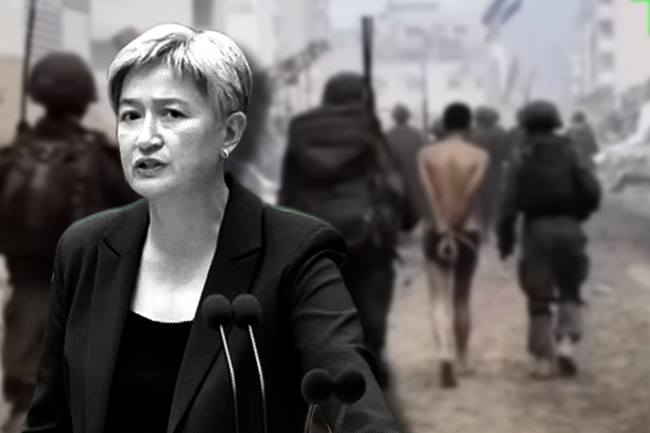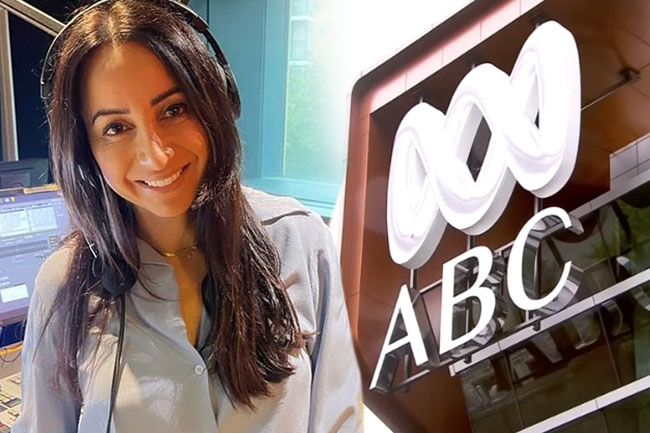It is glaringly obvious that Frydenberg is not being denied a place in Parliament because his family was forced to flee the Holocaust, writes Dr Jennifer Wilson.
The ongoing furore over Treasurer Josh Frydenberg’s eligibility or otherwise to sit in the Australian Parliament springs from his Jewish family’s journey from post-war Hungary to Australia in 1950 and, particularly, the citizenship status of his mother, Erika, who was born in Hungary in 1943.
Frydenberg has consistently and somewhat mystifyingly refused to make public legal advice he claims confirms that he has no citizenship entitlements in any country other than Australia — a move that would likely lay the matter to rest. It is difficult to see how Frydenberg, his family or the Government are benefitting in any way from this drawn-out process and yet, here we are.
Frydenberg first came under scrutiny two years ago, in November 2017, when he was Minister for Energy in the then Turnbull Government. At the time, conflicting accounts of his mother's citizenship were published in the media.
Turnbull reacted swiftly to concerns about his Minister’s eligibility, describing them as a "witch hunt". He then embarked on one of his more memorable episodes of confected outrage, invoking the Holocaust, the gas chambers and anti-Semitism as the drivers behind the questioning of Frydenberg’s status.
At the time, the Labor Opposition was divided about pursuing Frydenberg, with Deputy Leader Tanya Plibersek arguing it was “a bridge too far” to hound someone whose Jewish family had declared themselves stateless after World War Two, while Shadow Attorney-General Mark Dreyfus felt that Frydenberg’s family history should not be used to prevent scrutiny of his status.
When it became clear to the major parties that citizenship issues raised by what is now commonly referred to as s44 of the Constitution would detrimentally affect them both, parliamentary referrals ceased and the fraught agitation for Frydenberg to clear up his status subsided.
Fast forward two years to 2019. On July 11, a few weeks after the May Federal Election, lawyer Trevor Poulton published a substantial legal opinion on Frydenberg’s citizenship status which he forwarded to Prime Minister Scott Morrison and Opposition Leader Anthony Albanese as an argument for the Treasurer’s referral by parliament to the High Court, under s44 (1). This document is a thorough deconstruction of Frydenberg’s claims thus far, and well worth reading.
Morrison’s reaction was to declare Poulton an anti-Semite:
Josh Frydenber[g] received full support from Prime Minister Scott Morrison was [sic] at a media doorstop: “Is it time to draw a line under Section 44, and amend the constitution to deal with these issues?”
The Prime Minister answered: “I’ll tell you what it’s a time to draw a line on, and it’s anti-Semitism. I mean, the scourge of anti-Semitic graffiti that we’ve seen in Melbourne just this year, it is absolutely sickening and disgraceful. And for a Holocaust denier and an anti-Semite to seek to progress that agenda by pretending to have some sort of constitutional purity on Josh Frydenberg, I’m just going to call it out for what it is. And I think Australians… I think they would share that. Anti-Semitism has no place in this country.
I mean, I saw also what was happening with the graffiti against our colleague Julian Leeser up in Sydney. It’s sickening. And so, we have no truck with these anti-Semitic thoughts or practices or what they’re about. I mean, he shouldn’t be in the Labor Party for a start, how he’s even in there I’ve got no idea because I know that is as abhorrent in their way of thinking as it is to ours. So I’m calling that what it is. Thanks very much.”
Mr Poulton is understandably upset by the Prime Minister publicly describing him as anti-Semitic and has sent him a cease and desist letter, which was also published in Independent Australia.
We now have two prime ministers dealing with the matter of Frydenberg’s citizenship by accusing anyone who questions his status of anti-Semitism. By now, it is tempting to conclude that the charges of anti-Semitism are a highly unsavoury effort to silence through shaming. No doubt, there are those with anti-Semitic sentiments who would enjoy seeing Frydenberg undone. However, requesting his citizenship status be clarified is not in itself an anti-Semitic act. If the High Court judges find against him, will they be accused of anti-Semitism?
It is also reasonable to conclude that Frydenberg is his own worst enemy by claiming simultaneously that he has no citizenship issues and refusing to furnish us and the Parliament with his evidence of that claim.
Poulton does not live in the Kooyong electorate so he cannot mount a High Court challenge. However, a citizen in the electorate, Michael Staindl, has exercised his right under the Constitution to request a High Court ruling on whether or not Frydenberg is an Hungarian citizen. Mr Staindl has undertaken to drop the High Court challenge if Frydenberg discloses the legal advice he claims confirms his eligibility. Frydenberg, even more mystifyingly, continues to withhold this advice.
Enter GetUp. The activist group, known more for its disagreement with and some may claim harassment of the Coalition Government, issued a statement saying that the group does not support the referral of Frydenberg to the High Court under s44.
The statement reads in part:
'The challenge against Josh Frydenberg on the grounds of dual citizenship is beyond offensive and we condemn it.
No one should be denied a place in Parliament because their family was forced to flee the Holocaust.'
You can follow Dr Jennifer Wilson on her blog No Place for Sheep or on Twitter @NoPlaceForSheep.
 This work is licensed under a Creative Commons Attribution-NonCommercial-NoDerivs 3.0 Australia License
This work is licensed under a Creative Commons Attribution-NonCommercial-NoDerivs 3.0 Australia License
Support independent journalism Subscribe to IA.












